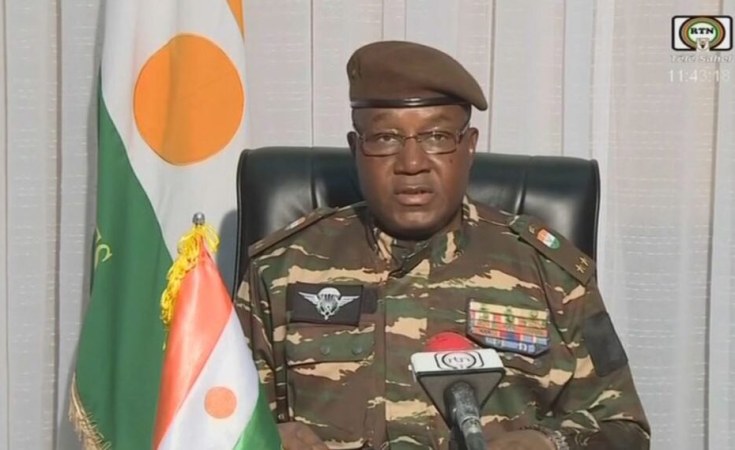"President Tinubu noted that Nigeria, under General Abdulsalami Abubakar, instituted a nine-month transition programme in 1998, and it proved very successful, leading the country into a new era of democratic governance," presidential spokesperson, Ajuri Ngelale said in a press release.
Nigeria's president and ECOWAS chair, Bola Tinubu, has hinted that he may support a nine-month transition period in Niger rather than his current stance for the return to power of ousted President Mohamed Bazoum.
Mr Tinubu, whose country has a huge influence on neighbouring Niger, gave the hint this last week during his meeting with the Nigeria Supreme Council of Islamic Affairs (NSCIA), which has been mediating the crisis in Niger.
"President Tinubu noted that Nigeria, under General Abdulsalami Abubakar, instituted a nine-month transition programme in 1998, and it proved very successful, leading the country into a new era of democratic governance," presidential spokesperson Ajuri Ngelale said in a press release.
The Nigerian leader, who had admitted that he was under pressure to authorise military action in Niger to sack the putschists, said he saw no reason why the Abdulsalami model cannot be replicated in Niger if the coup leaders are sincere.
The junta in Niger had proposed a three-year transition. The proposal was rejected by ECOWAS which has demanded the reinstatement of ousted president Bazoum.
Mr Tinubu's statement indicates that ECOWAS was willing to amend its demands if the junta reduced the period it wanted to be in power for. That may indicate an end to the possibility of the Mr Bazoum returning to office as global powers such as the UN, AU and the US have virtually deferred to ECOWAS to resolve the Niger crisis.
On 26 July, presidential guards in Niger took over the government, arrested Mr Bazoum and have since detained him.
Following the coup, ECOWAS imposed a flurry of sanctions on Niger and asked the junta to reinstate Mr Bazoum or risk a military intervention.
Although the bloc says it is ready to militarily intervene, it says it is a last resort.
During the meeting with the NSCIA, Mr Tinubu said no one is interested in a war.
Like Niger, Like Gabon
The coup in Niger was the sixth successful coup in Africa in the last four years and was followed by another in Gabon where soldiers on 30 August announced a takeover of the government following flawed elections in the country.
Just like the Nigeriens, Gabonese soldiers also placed the ousted president Ali Bongo under house arrest and have since appointed a transitional leader.
Even though the African Union has suspended Gabon for removing the government with force, it did not call for the reinstatement of Mr Bongo contrary to the position the continental bloc took when it affirmed its support for ECOWAS's position in Niger.
Rather, the AU demanded "the immediate restoration of constitutional order through the conduct of free, fair, credible and transparent elections that would be observed by the AU Election Observer Mission and the concerned region."
The coup in Gabon was a result of disputed elections that returned Mr Bongo for a third term after 14 years in power.
Before Ali Bongo in 2009, his father Omar Bongo was president from 1967 until his death in 2009.
The AU also noted that it is important for member states to address the root causes of coups which are now returning to the continent.
Since 2019, there have been seven successful coups in Africa by country count: Sudan, Mali, Chad, Guinea, Burkina Faso, Niger and Gabon.
"...the need for Member States to comprehensively address the structural root causes of and conditions that facilitate unconstitutional changes of government," AU said, requesting the AU Commission, with the support of Member States and the RECs/RMs, to undertake a comprehensive and objective study on the structural root causes of unconstitutional changes of government.
Encouraging the Gabonese to remain calm and refrain from any action that may inflame the situation, it reaffirmed its solidarity with their legitimate aspirations for democracy and good governance.
AU also encouraged them to embrace dialogue as the only viable approach towards finding consensual and lasting solutions to the challenges facing the country.


